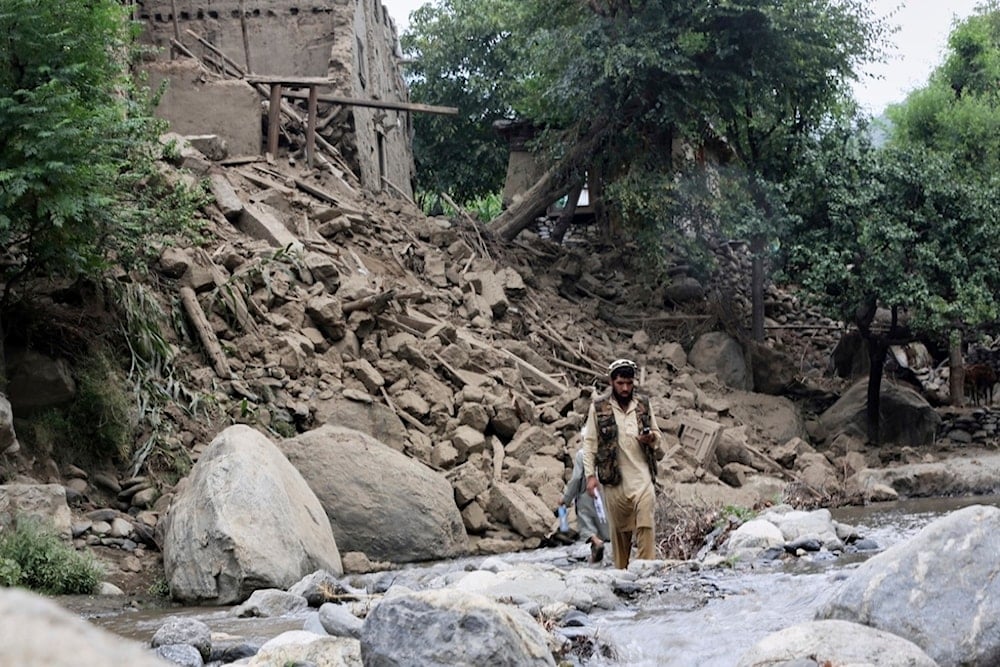Afghan government allocates emergency funds after deadly earthquake
A powerful earthquake in Afghanistan killed over 800 people and injured nearly 3,000, prompting the government to allocate emergency funds, appeal for aid, and seek international assistance.
-

A man and a boy cross a stream of water next to a house destroyed by an earthquake that killed many people and destroyed villages in eastern Afghanistan, in Mazar Dara, Kunar province, Afghanistan, Monday, Sept. 1, 2025. (AP Photo/Wahidullah Kakar)
Afghanistan's authorities have announced emergency funding following a powerful 6.0-magnitude earthquake that struck the country's eastern and central provinces early Monday, killing more than 800 people and injuring close to 3,000, according to the Afghanistan National Disaster Management Authority, cited by Tolo News.
Entire villages were flattened in the eastern provinces bordering Pakistan's Khyber Pakhtunkhwa region, with officials in Kunar province reporting that at least three villages were completely destroyed. Homes collapsed under the midnight tremor, forcing rescuers and residents to dig through rubble with limited equipment. Helicopters were deployed to airlift the wounded, while soldiers and civilians worked side by side to carry casualties to ambulances.
In a statement, the prime minister's office confirmed that 10 million Afghanis ($145,000) had been released for immediate relief. "For urgent response measures, the respected prime minister has allocated 10 million Afghanis [$145,000] for immediate use. Additional funds will be provided if necessary," the statement read. To oversee operations, a special committee has been established under Acting Minister of Rural Rehabilitation and Development Muhammad Yunus Akhundzada. The government has appealed to citizens, charities, and business leaders to mobilize resources for those affected.
Afghanistan has also turned abroad for support. Russian Special Representative Zamir Kabulov said Kabul's request for assistance is currently under review by Russia's Ministry of Emergency Situations. Meanwhile, Afghan officials noted with concern that "so far, no foreign governments have reached out to provide support for rescue or relief work," highlighting the country's isolation since the U.S. withdrawal and the imposition of international sanctions.
Read more: Afghanistan marks 106 years of independence, a century of resistance
The quake struck a nation already facing severe humanitarian challenges. Since 2021, Afghanistan has been largely cut off from global banking systems, with billions in foreign aid halted and humanitarian funds drastically reduced since early 2024. The disaster comes just a year after tremors in the west of the country killed more than 1,000 people, underscoring Afghanistan's vulnerability as it sits on a major fault line where the Indian and Eurasian tectonic plates collide.
For a population already grappling with poverty, unemployment, and shortages of food and medicine, the earthquake has deepened an unfolding humanitarian crisis.

 3 Min Read
3 Min Read








